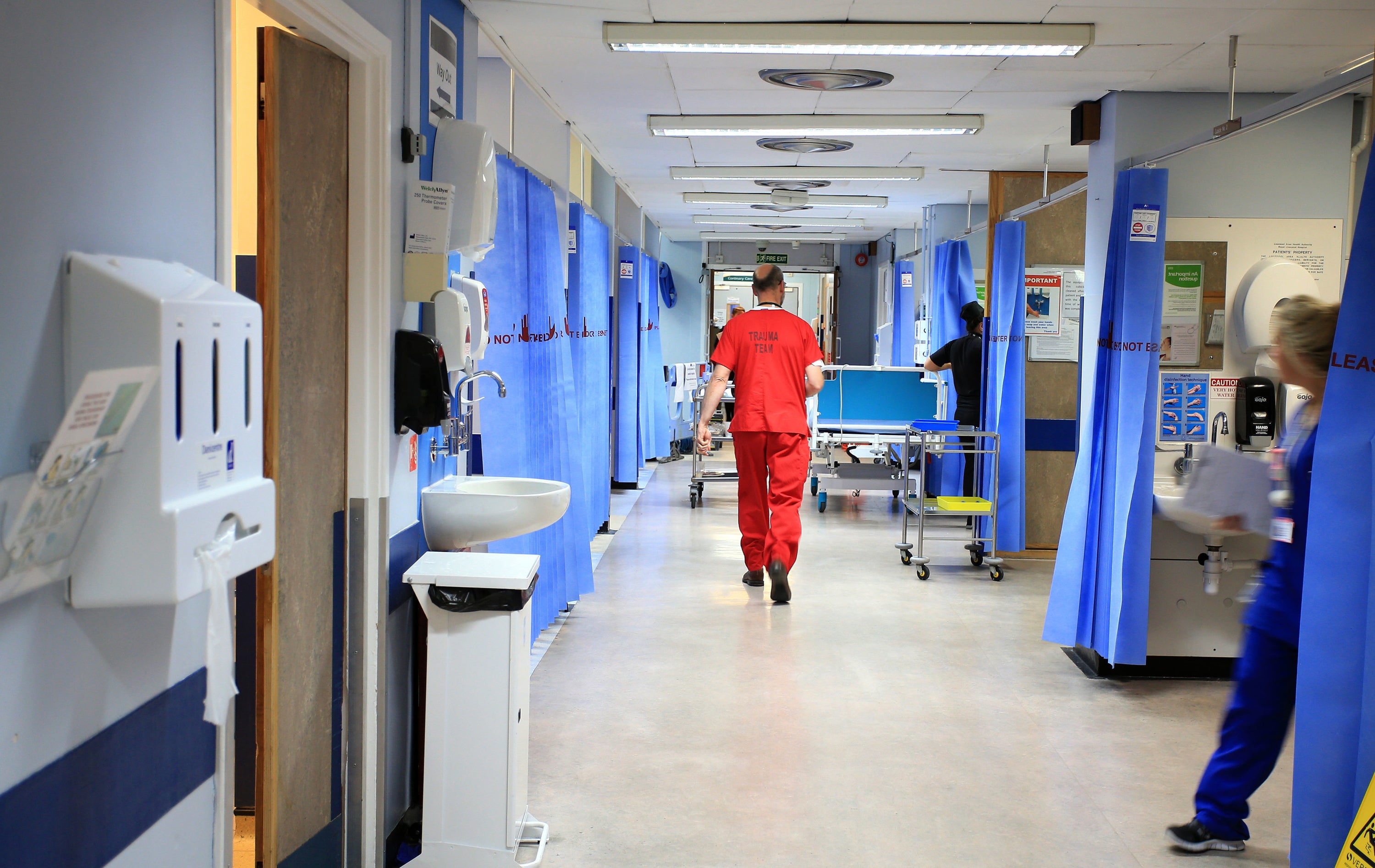I felt the impact of cracks in the NHS years ago. How much worse are things now?
How often are agonised patients clashing with exhausted staff who have been pushed to, or beyond, their, limits?


Corinna Faith’s 2021 chiller The Power is about power imbalances and abuse but it was the setting – of a fictional east London hospital at night, in the midst of one of the power cuts endemic to the 1970s – that did for me.
It brought back a torrent of dark and disturbing memories. I spent long weeks bedridden in the real east London hospital that serves as the film’s backdrop, and then one a few miles away from it. There were no power cuts at night, of course. No candles. No gas powered lanterns to light the fearful nurses’ way.
But the shadows, the unexplained noises breaking through the stillness, and yes, the unquiet spirits. They were all there. You hallucinate when you have strong drugs being fed into your veins, and that can make them terribly real. Nor do they ever entirely leave you. They still inhabit my dreams.
But what really disturbs me now and makes the hairs at the back of my neck rise, is a question: what would the experience be like today? How is it for the contemporary cyclist who gets crushed under the wheels of a truck on the streets of east London, or anywhere else for that matter?
Boris Johnson admitted last week that parts of the NHS are under “huge pressure”. Ministers were accused of setting the bar for “overwhelmed” too high. The health secretary, Sajid Javid, even suggested it would be children not receiving treatment after car crashes. There was a report of people with suspected heart attacks being told to get a lift rather than an ambulance, as Omicron took a machete to staffing levels
As an adult victim of a road traffic accident some years ago, it was possible to see or, more to the point, to feel the impact of cracks in the NHS. One of my worst experiences was being lashed out at by a member of staff after pressing the call button because I needed morphine – and yes, the pain was such that I really needed morphine – barely an hour after taking a piss. The latter required a bottle, at which point I wasn’t due another dose. So what was I supposed to do when the call of nature struck? Hold off until the morphine was permissible?
After my transfer to the hospital where that happened, I spent hours without any painkillers because they couldn’t find a doctor to sign off on my being given so much as a paracetamol, even though my prescription and my notes were there, and the place was part of the same NHS trust I’d been transferred from.
Torture is defined as the “deliberate infliction of severe pain or suffering on a person”. What I experienced that night clearly wasn’t deliberate, but the pain and suffering were severe, bordering on the unbearable.
The feeling of vulnerability when you’re unable to move and when you are completely reliant on someone else at night is more frightening than the darkest horrors conjured up by the motion picture industry, especially when the care falls short.
Don’t get me wrong here. I’m eternally grateful to the people who saved my life and kept me going in the aftermath. The above incidents were isolated. I would happily see most of my carers canonised. But – and this nags at me – would I be able to say the same today?
To keep up to speed with all the latest opinions and comment, sign up to our free weekly Voices Dispatches newsletter by clicking here
Are people spending nights waiting long painful hours for pharmaceutical release? Or just for a bottle? How often are agonised patients clashing with exhausted staff who have been pushed to, or beyond, their, limits? How much worse has it been made by Bozza boozing it up in the back garden because his staff worked jolly hard so why not let them blow off some steam with a bottle or three from a Westminster offie?
That’s before we move on to what Covid has done to the sanity-preserving visits from friends and relatives, without which I would have been in a very bad place. Bizarrely, it was snooker that kept my head from falling into a black pit when they weren’t in attendance, at least for a couple of weeks. It’s a sport I hadn’t watched before and haven’t watched since.
But in hospital, there was something oddly therapeutic, even hypnotic, about the clunk clack of the balls falling into pockets, the soft voiced commentary, the polite ripples of applause, on the BBC’s late night highlights on the screen above my bed. I ignored the voice in my head that said: “Dude, you’re watching snooker, you are royally screwed, you know” and let it lull me to sleep.
It isn’t just Covid patients who are suffering and impacted by unspeakably callous politicians, and their voices, I fear, have gone unheard. And there’s no pot black on the telly right now.
Join our commenting forum
Join thought-provoking conversations, follow other Independent readers and see their replies
Comments
Bookmark popover
Removed from bookmarks